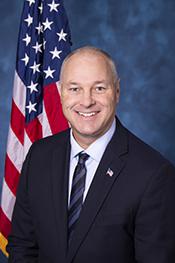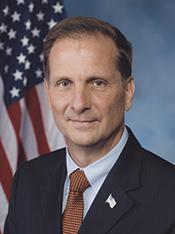0
0
0
Permitting for Mining Needs Act of 2023
12/15/2023, 3:53 PM
Summary of Bill HR 209
Bill 118 HR 209, also known as the Permitting for Mining Needs Act of 2023, is a piece of legislation currently being considered by the US Congress. The main purpose of this bill is to streamline the permitting process for mining operations in order to increase efficiency and promote economic growth in the mining industry.
The bill aims to address the lengthy and complex permitting process that mining companies currently face when seeking approval for new projects. By streamlining this process, the bill seeks to reduce bureaucratic red tape and expedite the approval of mining permits, allowing companies to begin operations more quickly.
Proponents of the bill argue that by making the permitting process more efficient, the mining industry will be able to create jobs, stimulate economic growth, and increase domestic production of critical minerals. They also argue that the bill will help the United States reduce its reliance on foreign sources of minerals, which are essential for a wide range of industries, including technology, defense, and infrastructure. Opponents of the bill, however, raise concerns about the potential environmental impacts of streamlining the permitting process for mining operations. They argue that by expediting the approval of mining permits, the bill could lead to increased pollution, habitat destruction, and other negative environmental consequences. Overall, Bill 118 HR 209 is a controversial piece of legislation that seeks to balance the economic benefits of streamlining the permitting process for mining operations with the potential environmental risks. As the bill continues to be debated in Congress, it will be important for lawmakers to carefully consider these competing interests and ensure that any changes to the permitting process are made in a responsible and sustainable manner.
The bill aims to address the lengthy and complex permitting process that mining companies currently face when seeking approval for new projects. By streamlining this process, the bill seeks to reduce bureaucratic red tape and expedite the approval of mining permits, allowing companies to begin operations more quickly.
Proponents of the bill argue that by making the permitting process more efficient, the mining industry will be able to create jobs, stimulate economic growth, and increase domestic production of critical minerals. They also argue that the bill will help the United States reduce its reliance on foreign sources of minerals, which are essential for a wide range of industries, including technology, defense, and infrastructure. Opponents of the bill, however, raise concerns about the potential environmental impacts of streamlining the permitting process for mining operations. They argue that by expediting the approval of mining permits, the bill could lead to increased pollution, habitat destruction, and other negative environmental consequences. Overall, Bill 118 HR 209 is a controversial piece of legislation that seeks to balance the economic benefits of streamlining the permitting process for mining operations with the potential environmental risks. As the bill continues to be debated in Congress, it will be important for lawmakers to carefully consider these competing interests and ensure that any changes to the permitting process are made in a responsible and sustainable manner.
Current Status of Bill HR 209
Bill HR 209 is currently in the status of Bill Introduced since January 9, 2023. Bill HR 209 was introduced during Congress 118 and was introduced to the House on January 9, 2023. Bill HR 209's most recent activity was Subcommittee Hearings Held. as of February 28, 2023
Bipartisan Support of Bill HR 209
Total Number of Sponsors
1Democrat Sponsors
0Republican Sponsors
1Unaffiliated Sponsors
0Total Number of Cosponsors
0Democrat Cosponsors
0Republican Cosponsors
0Unaffiliated Cosponsors
0Policy Area and Potential Impact of Bill HR 209
Primary Policy Focus
EnergyComments
Sponsors and Cosponsors of HR 209
Latest Bills
Providing for congressional disapproval under chapter 8 of title 5, United States Code, of the rule submitted by the Bureau of Land Management relating to "Central Yukon Record of Decision and Approved Resource Management Plan".
Bill HJRES 106December 12, 2025
Providing for congressional disapproval under chapter 8 of title 5, United States Code, of the rule submitted by the Bureau of Land Management relating to "North Dakota Field Office Record of Decision and Approved Resource Management Plan".
Bill HJRES 105December 12, 2025
Holocaust Expropriated Art Recovery Act of 2025
Bill S 1884December 12, 2025
Providing for congressional disapproval under chapter 8 of title 5, United States Code, of the rule submitted by the Bureau of Land Management relating to "Miles City Field Office Record of Decision and Approved Resource Management Plan Amendment".
Bill HJRES 104December 12, 2025
Enduring Justice for Victims of Trafficking Act
Bill S 2584December 12, 2025
National Defense Authorization Act for Fiscal Year 2026
Bill S 1071December 12, 2025
Technical Corrections to the Northwestern New Mexico Rural Water Projects Act, Taos Pueblo Indian Water Rights Settlement Act, and Aamodt Litigation Settlement Act
Bill S 640December 12, 2025
Department of Defense Appropriations Act, 2026
Bill HR 4016December 12, 2025
End the Fed’s Big Bank Bailout Act
Bill S 2113December 12, 2025
Federal Reserve Transparency Act of 2025
Bill S 2327December 12, 2025
SPUR Act
Bill S 1456March 13, 2024
Mining Regulatory Clarity Act of 2023
Bill S 1281February 6, 2024
Mining Regulatory Clarity Act of 2024
Bill HR 2925May 29, 2024
Limit, Save, Grow Act of 2023
Bill HR 2811January 3, 2024
PRIMED Act
Bill HR 2623December 15, 2023
Lower Energy Costs Act
Bill HR 1December 15, 2023

